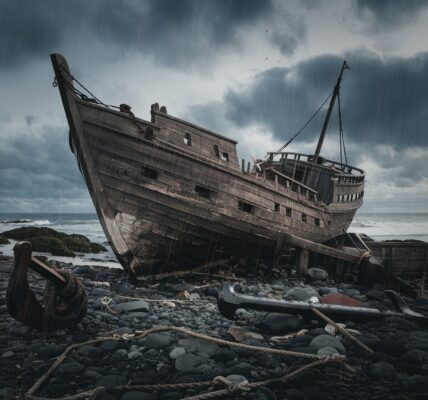Torrential Rain Brings Deadly Floods to Romania and Other Parts of Central Europe
Severe floods have claimed the lives of four people in Romania, as torrential rain continues to devastate central and eastern Europe. Emergency services confirmed the deaths occurred in the southeastern region of Galati during a large-scale search and rescue operation. In total, dozens of people across the country have been rescued from their homes, with 19 areas severely impacted by rising water levels.
Highest Flood Alert Declared in the Czech Republic
Elsewhere, the situation remains critical in 38 locations across the Czech Republic, where authorities have declared the highest flood alert. In Prague, flood barriers have been raised, embankments have been closed to the public, and the city’s zoo has been shut down as a precaution. With memories of the devastating floods of 2002 still fresh, Prague officials are taking no chances, swiftly activating anti-flood measures to protect the city’s historic districts.
Poland Faces Evacuations as Rivers Reach Dangerous Levels
In Poland, the threat of flooding has triggered evacuations in small towns near the Czech border. In Glucholazy, the river level has risen by two meters above safe levels, prompting residents in nearby streets to flee their homes. Polish Interior Minister Tomasz Siemoniak warned of the precarious situation, with four southern provinces at the greatest risk of severe flooding. The situation remains volatile, with several rivers expected to overflow, potentially causing widespread damage and further evacuations.
Cyclone Boris Wreaks Havoc Across Multiple Countries
The severe weather, driven by Cyclone Boris, has unleashed strong winds and torrential downpours across several European nations, including Poland, Austria, the Czech Republic, Hungary, Romania, and Slovakia. The cyclone, which began on Thursday, has significantly impacted these regions, with authorities scrambling to prepare for further flooding.
Prague Strengthens Flood Defenses Amid Rising River Levels
Prague, one of the cities most vulnerable to flooding, has mobilized extensive resources to prevent a repeat of past disasters. Authorities have closed the Certovka Gate, a key component of the city’s flood defense system. This steel gate, part of a €1 billion nationwide network, is designed to protect the city from catastrophic flooding like that of 1997 and 2002, which claimed dozens of lives and caused extensive damage. The focus this weekend is on North Moravia, where heavy rain is expected to cause significant water surges in the River Oder, affecting both Czech towns and villages as well as areas in Poland.
Austria Faces Record Rainfall and Snowfall
In Austria, the weather has also taken a dramatic turn. Following the country’s hottest August on record, regions such as Upper Styria and the Jeseniky Mountains are now bracing for an unprecedented amount of rainfall, with forecasts predicting 10-20 cm of rain in the coming days. In the Tyrol region, heavy snowfall has already blanketed parts of the Kalser Ködnitztal valley. Experts warn that previous September rainfall records may be shattered within a matter of days, with flooding and landslides a serious risk.
Authorities Prepare for Localized Flash Floods in Poland
Despite the concerning forecasts, Polish Prime Minister Donald Tusk sought to reassure the public, stating that while localized flash floods are possible, there is no expectation of a national-scale disaster. However, in preparation for the worst, Poland’s territorial army is on standby, and millions of sandbags have been stockpiled in the most at-risk provinces, such as Malopolska and Lower Silesia.
Transportation Disruptions and Volunteers Mobilized
As the heavy rainfall continues, Austrian authorities have urged residents to postpone non-essential travel, particularly on the railway network. Parts of the Tauern railway line in the Salzburg province have already been shut down due to snow and flooding. Aid organizations like Caritas have called for volunteers to help assist those affected by the floods, particularly in areas expected to bear the brunt of the storm.
Czech Republic Faces Dilemmas as Floodwaters Surge
In the Czech Republic, officials have faced tough decisions, including refusing a German request to halt the release of water from the Vltava Cascade reservoirs, a crucial part of the country’s flood defense system. The reservoirs, which feed into the Elbe River flowing into Germany, need to remain partially empty to accommodate the surge of water expected over the weekend.
Climate Change and Increasing Flood Risks
Extreme weather events like these floods are becoming more frequent, with climate change playing a significant role. A warmer atmosphere holds more moisture, leading to heavier rainfall and greater risks of extreme precipitation. As regions across Europe continue to grapple with these climate-driven changes, the need for resilient infrastructure and effective disaster management has never been more critical.





